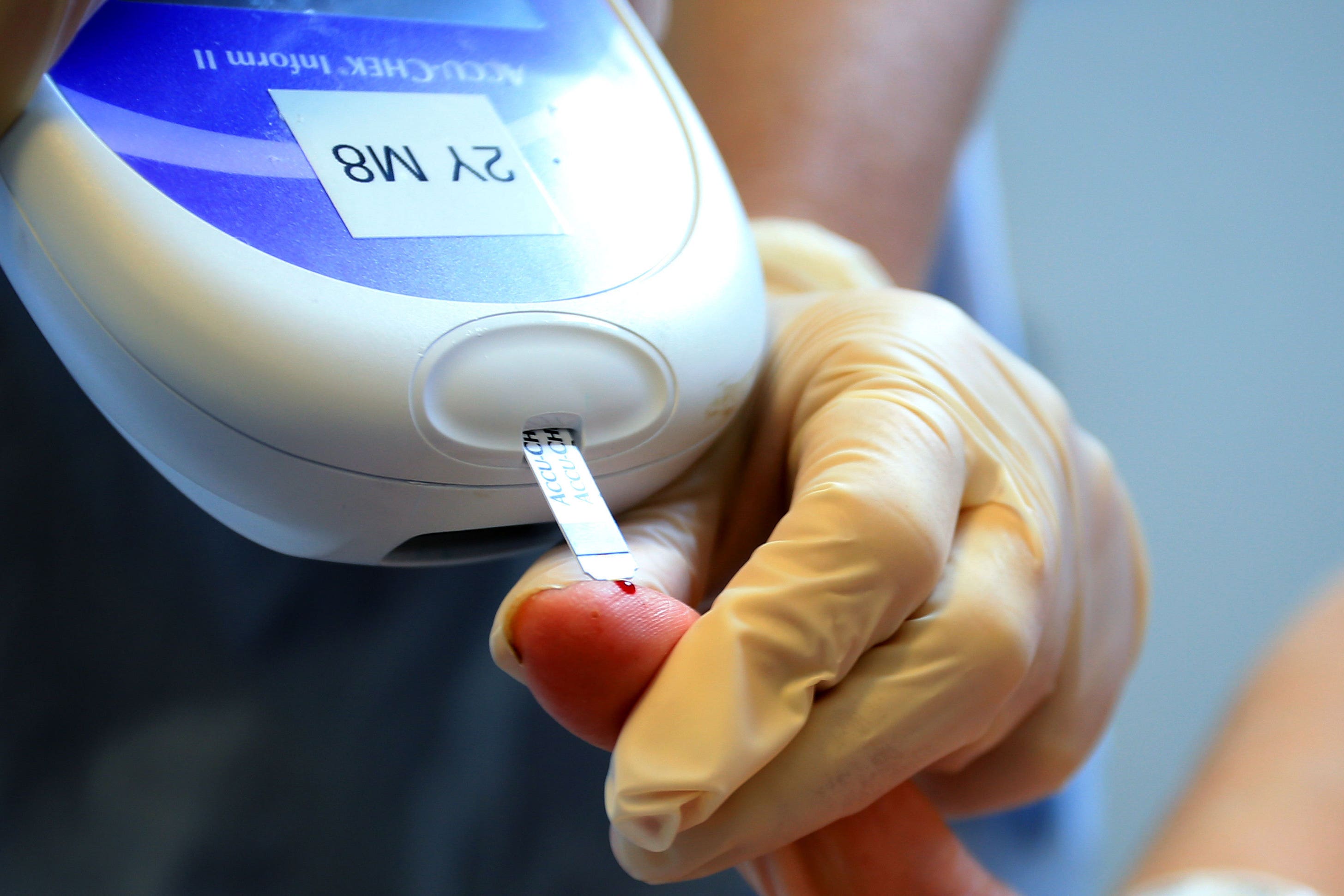One million adults living with undiagnosed type 2 diabetes, figures show
Millions more are at risk of developing the condition.

An estimated one million adults in England are living with undiagnosed type 2 diabetes, according to new figures from the Office for National Statistics (ONS).
Younger people with the condition, which causes blood sugar levels to become too high and can lead to serious complications without treatment, faced a higher risk of being undiagnosed.
Using data from the Health Survey for England 2013 to 2019, the ONS estimates that 7% of people over the age of 16 show evidence of type 2 diabetes, although three in ten, or about one million, were not diagnosed.
The charity Diabetes UK previously estimated the figure at 850,000, based on diabetes prevalence modelling and projections produced by Public Health England (PHE) in 2016.
Some 50% of people aged 16 to 44 were undiagnosed compared with 27% aged 75 and over, the ONS said.
People with type 2 diabetes who had good general health were also more likely not have a diagnosis, as well as slim women with smaller waists who were not prescribed anti-depressants.
The findings are a reminder of just how important it is for type 2 diabetes to be detected and diagnosed as early as possible, so people can get treatment and support to reduce the risk of devastating complications and, importantly, be offered remission programmes where appropriate
Analysis by Diabetes UK in 2023 estimated that 4.3 million people were living with a diabetes diagnosis in the UK.
Symptoms include excessive thirst, tiredness and needing to urinate more often, although many people have no symptoms.
Nikki Joule, policy manager at the charity, said: “Type 2 diabetes is a life-changing condition that often develops slowly, especially in the early stages, when it can be very difficult to spot the symptoms.”
ONS figures also showed that pre-diabetes, when blood sugars are higher than usual, but not high enough for a diabetes diagnosis, affects about 5.1 million adults in England.
Those most likely to develop the condition had known diabetes risk factors such as being overweight or older.
However, the ONS said there was “considerable prevalence” in people considered at low risk of pre-diabetes, including 4% of people aged 16 to 44 and 8% who were not overweight or obese.
Those from black or Asian groups also faced more than double the risk of pre-diabetes at 22% compared with 10% of people from white, mixed and other ethnic groups.
Type 2 diabetes overall was higher among black and Asian people at 5%.
Ms Joule added: “The figures published today by ONS reveal a shockingly high number of people living with type 2 diabetes without a diagnosis, while millions more are at high risk of developing it.
“We’re particularly concerned about the prevalence of pre-diabetes and undiagnosed type 2 diabetes in people from black and Asian backgrounds, and the worrying proportion of younger people who are undiagnosed, as we know type 2 diabetes is more aggressive in younger people.
“The findings are a reminder of just how important it is for type 2 diabetes to be detected and diagnosed as early as possible, so people can get treatment and support to reduce the risk of devastating complications and, importantly, be offered remission programmes where appropriate.”
A Department of Health and Social Care spokesperson said: “This Government has already taken significant action on Type 2 diabetes and its causes, including delivering an ambitious programme of work to improve diets and help people achieve and maintain a healthy weight.
“In August, NHS England announced a world-first initiative to transform diabetes care for under-40s, and it also has an engagement campaign to boost uptake of targeted support for black and South Asian people.
“Our Major Conditions Strategy will look at the prevention and management of conditions linked to Type 2 diabetes, while our plans for a smokefree generation represent the most significant public health intervention in living memory.”
Bookmark popover
Removed from bookmarks